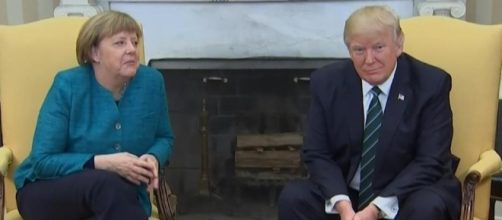In 1975, 67% of eligible voters decided Britain should remain a part of the European Economic Community, or the Common Market as it was commonly known as back then. The then Remain campaign's overwhelming victory was delivered by a belief among the electorate that joining the Common Market was best for Britain's trading interests; how wrong they were then. They were duped.
What is worse is that the CIA funded the Remain campaign during that referendum because it was in the United States' best interests for Britain to remain part of the EEC. Since Donald Trump became President of the United States, we have witnessed a dramatic change in US foreign policy regarding Europe since the Second World War.
Every US President since Roosevelt has claimed to be interested in the 'special relationship' between Britain and America, but no president since Trump has stood up for the UK in quite the way he has, especially as Britain prepares to leave the EU.
The bond between both nations was damaged by the Obama years. Obama suggested the UK would be at the 'back of the queue' for a trade deal post-Brexit, a line that was clearly scripted for him by his former PR buddy, Cameron, as queue is a British word. Prior to that, he made many more snubs against Britain, like leaving Cameron in the cold over his lack of intervention in Syria. Since he stood down, his Republican successor has moved the UK to the 'front of the queue' for a trade agreement since his inauguration.
'Powers have been surrendered to Brussels.'
Yet what is the one factor prohibiting this nation's ability to forge trade deals with growing economies? The European Common Commercial Policy. What is this law? It is a piece of EU legislation that prevents individual member states from negotiating their own trade agreements with non-EU countries. Instead, those powers have been surrendered to Brussels. If many who voted to remain in the Common Market in 1975 knew this, the outcome then would have been very different.
It is welcome news to the Prime Minister and many Brexiteers that UK and US officials will meet next week to lay the foundations for a post-EU trade agreement. But nothing can be signed until the Government repeals the Common Commercial Policy.
Once that happens, this country will have the sovereignty to trade with the rest of the globe.
The EU's track record of forging trade deals with other countries is abysmal, a cataclysmic failure. Last year, the Transatlantic Trade and Investment Partnership, the proposed trade agreement between the US and the EU, collapsed, with hatred for this proposal emerging from both wings of the political spectrum. And President Trump does not seem interested in enhancing Obama's work here.
Considering the EU is more interested in centralising its power than propserous trade agreements, it is a relief that Britain voted to leave this failing trading bloc last year.

